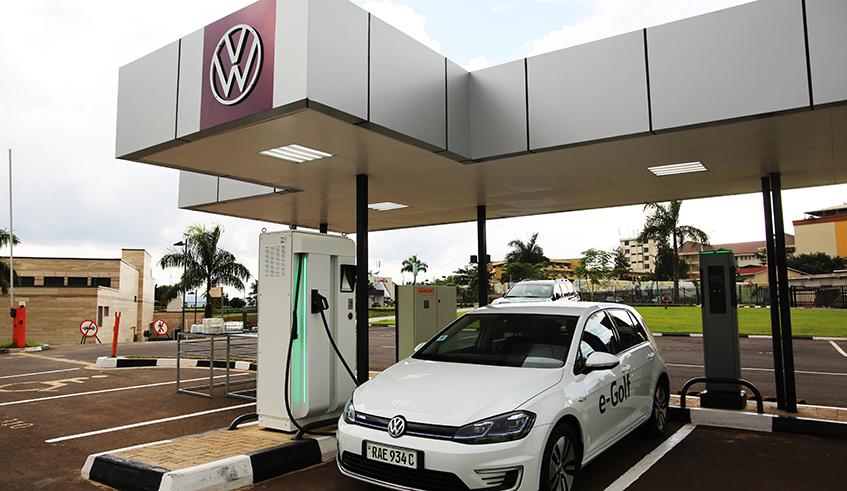Africa-Press – Rwanda. The government’s incentive exempting electric and hybrid vehicles, as well as electric charging station equipment, from VAT, import and excise duties, and withholding tax as well as reducing electricity tariffs for charging stations, is yet to be implemented, stakeholders claim.
The incentives were announced following a cabinet meeting on April 15th and are part of the country’s approved electric mobility adaptation strategy which intends to increase the use of electric automobiles and motorcycles.
The incentives are also aimed at attracting capital to the budding sector in the country. In comparison to a gasoline-powered vehicle, this would make owning and maintaining an electric vehicle less expensive.
Tax exemptions, as well as reductions in electricity rates for charging tariffs, are among the aspects that have yet to be implemented, according to stakeholders, with some noting that the incentives are partially applied in some instances.
“We have so far imported up to 400 electric bikes and have reaped some benefits. Because it appears that these exemptions do not apply to some spare parts of the vehicles that we would like to be included as well,” Donald Kabanda, CEO of Rwanda Electricity Mobility Ltd, REM, explained.
The reduction in energy prices has yet to benefit REM Ltd, which also serves as a charging station for thousands of electric vehicles. Josh Whale, the CEO, and founder of Ampersand, an e-mobility firm operating in Rwanda, also noted that the implementation is yet to be entirely effected.
“The incentives haven’t been entirely implemented yet. We believe it is because it will necessitate a great deal of effort and coordination from the responsible institutions, and we are looking forward to it,” he stated.
When asked why the delay occurred, Alfred Byiringiro, Director General for Transport in the Ministry of Infrastructure, informed Doing Business that the government was reviewing the incentive implementation process.
“The incentives were agreed by the Cabinet and must be carried out by various entities. Some of the incentives have already been implemented, while others are still being evaluated by relevant organizations,” he said. The incentives are a step toward Rwanda’s long-term aim of becoming a carbon-neutral nation by 2050, as outlined in Vision 2050.
According to a paper titled “a road map for e-mobility transition in Rwanda” published by the International Growth Center, IGC, Rwanda currently has over 221,000 registered vehicles, with 52 percent being motorcycles and 38 percent being passenger vehicles, with at least 30,000 in Kigali. The number of vehicles on the road is steadily increasing (almost 12 percent per year).
According to a recent IGC research on electric vehicles, the government should seek to convert 30 per cent of motorbikes, 8 per cent of cars, 20 per cent of buses, and 25 per cent of small and microbuses to electric power by 2030.






